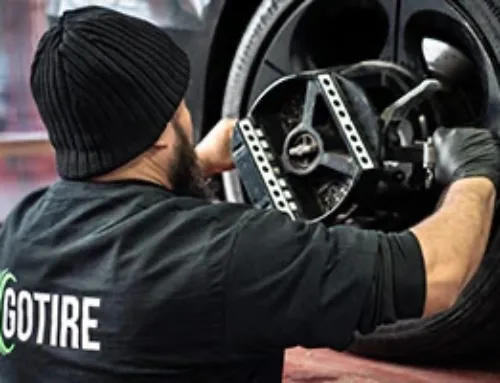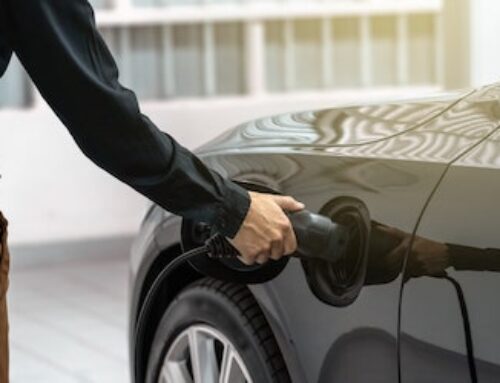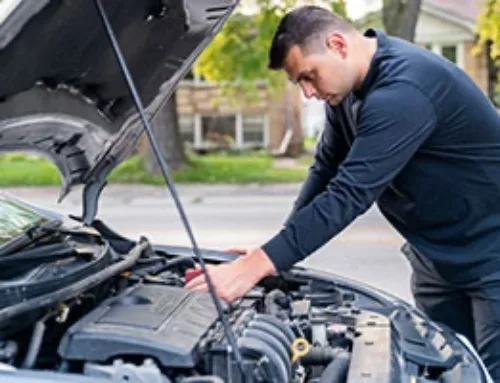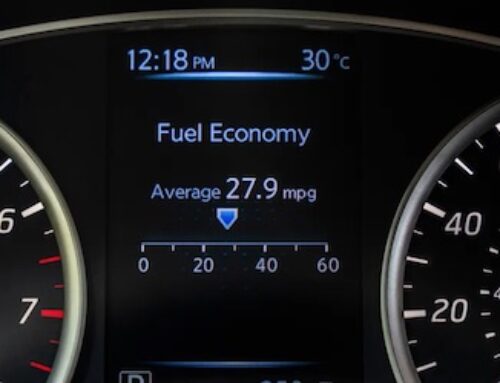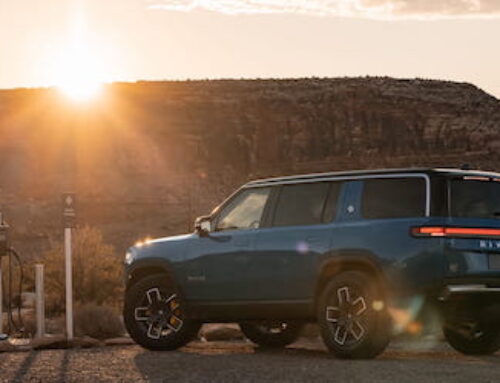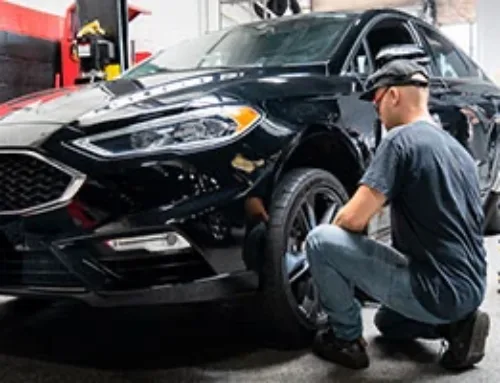Table of Contents
Your brakes are an essential safety feature, and hearing a squeaking noise coming from them can be really worrying. Brake squeaking is a common problem and can be annoying and even dangerous if left unaddressed. Luckily it’s usually a simple fix, and maybe one you can do yourself. Read on to learn why brakes squeak and how to stop brakes from squeaking.
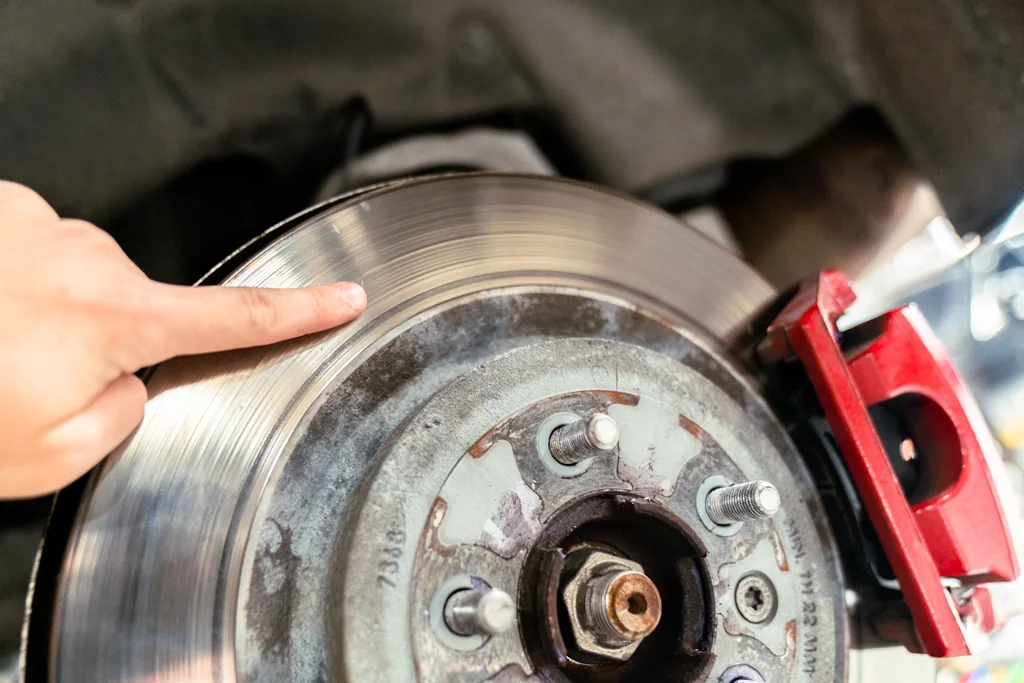
What does it mean when your brakes are squeaking?
Before we get into how to stop brakes from squeaking, it’s important to understand why they squeak in the first place. Often brake noise is quite normal and not due to anything too serious, but it can also be an indication that your brake pads are wearing down.
Your braking system includes a metal disc and a brake pad that presses against the disc causing the car to slow and stop. As you can imagine, this system has some natural noises, but squeaks and sounds from your brakes should be dealt with quickly.
There are several reasons why brakes may squeak, including:
New brake pads: On a new car, your brakes may squeak at first, but this shouldn’t last for long.
Worn brake pads: Over time, brake pads wear down and can become too thin, causing the wear indicator to scrape against the disc. This will make noise more similar to sheet metal being ripped, not the single-pitch squeal of other causes, and it will continue every time you brake.
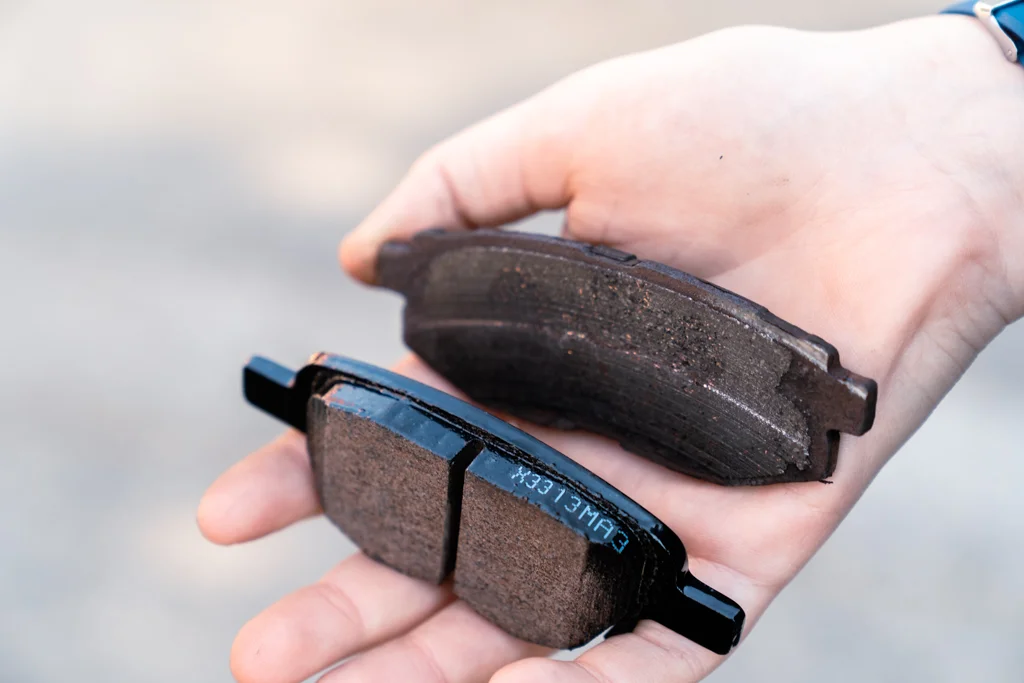
Dirty brake components: Dirt and debris from the road can build up on your braking system, which can cause a squealing sound when you brake. This should stop after tapping the brake pedal a couple of times as the debris is cleared away
Loose brake components: Loose parts in your braking system can also make noises, including squeaks or even a grinding noise. If this is the case, you should check your brakes or get them examined by a mechanic.
Weather conditions: Similar to dirt in your brakes, rain and snow, or humidity can cause your brakes to make a squeaking sound – but this should go away after a few times using your brakes.
One of the key takeaways from these different causes is that if the sound in your brakes goes away quickly, it’s probably not a serious issue, but if it continues, you should inspect your brakes or get them checked out by a mechanic.
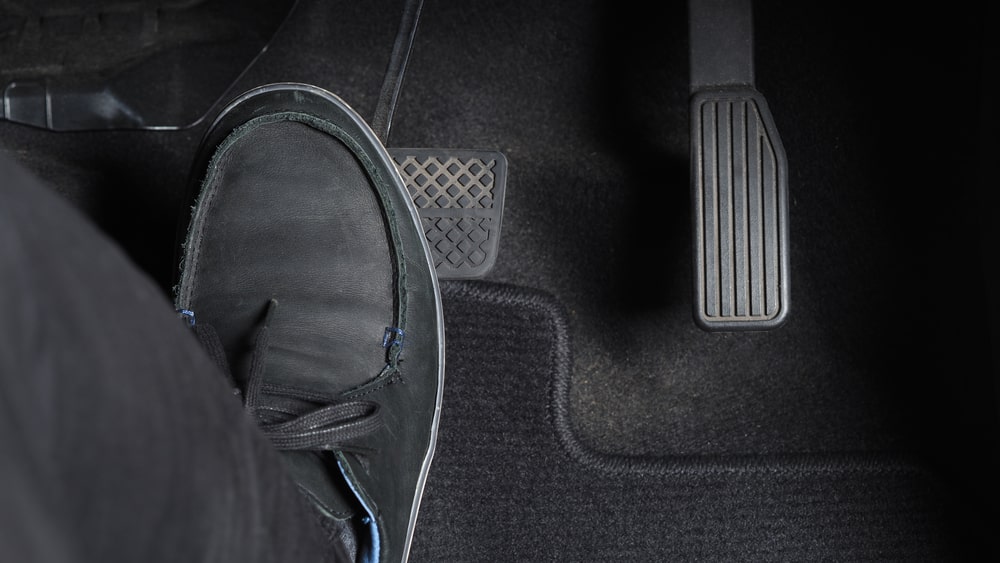
How to stop squeaky brakes
Now that you understand the reasons why your brakes are squeaking, here are some tips to fix squeaky brakes.
Clean Your Brakes
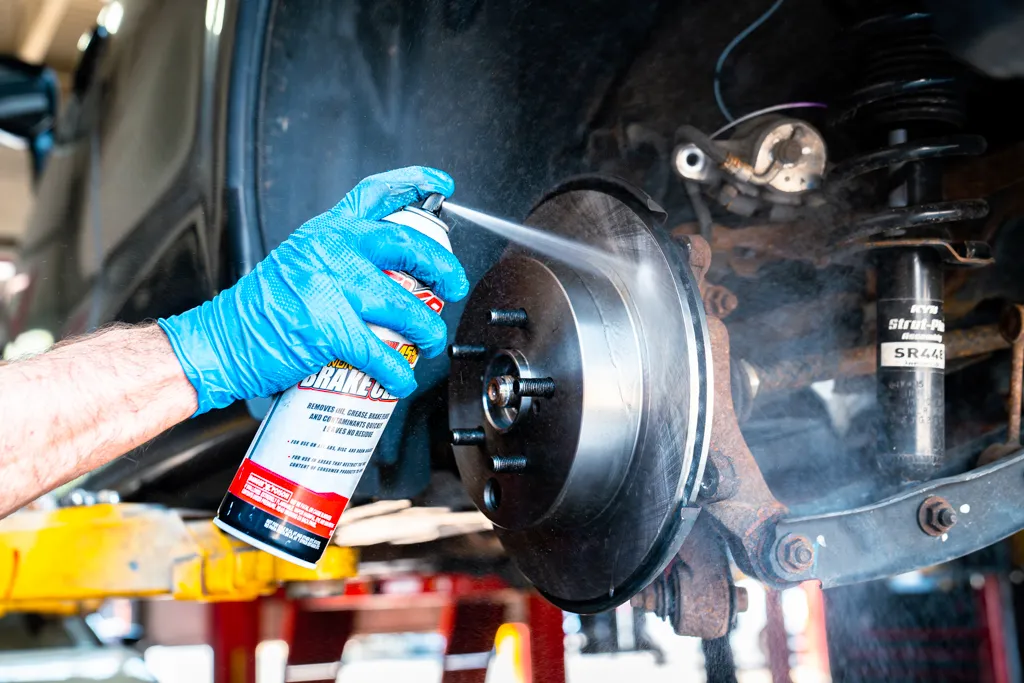
If your brake pad is dirty or a bit rusty but still thick enough for safe braking, you can clean it using a wire brush or abrasive paper and a brake cleaner. You can clean any contact points on the discs and calipers. Removing dirt or debris should reduce the amount of squeaking.
Install shims
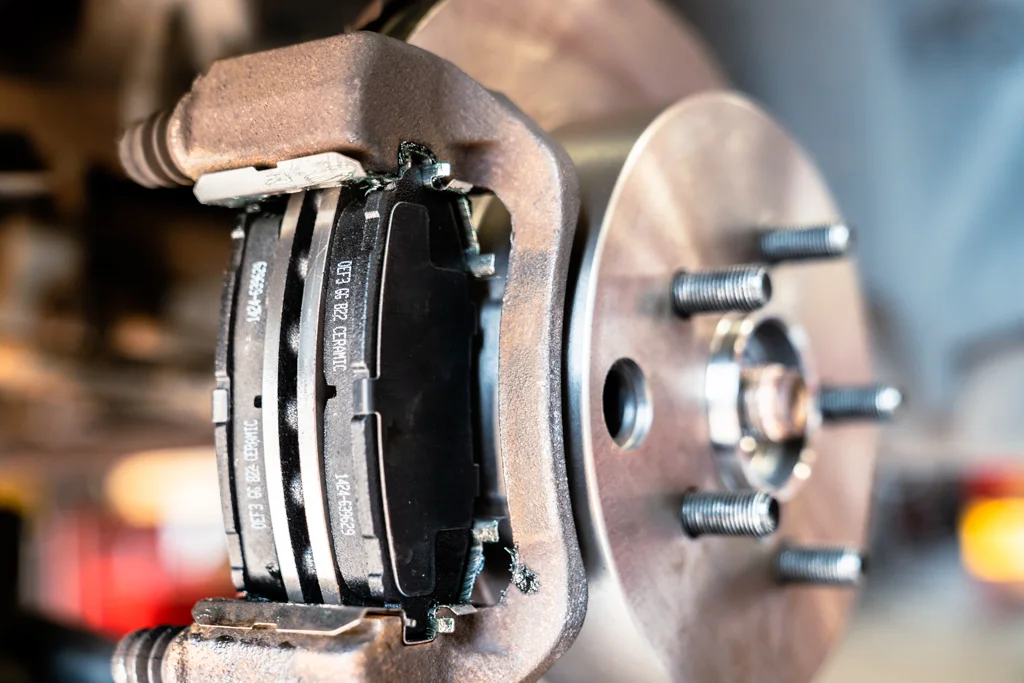
Brake pad shims are designed to keep the brake pads in place, reducing noise from vibration, and use rubber to absorb any noise that comes from your brakes. Sometimes brakes come with them installed, or you can add them after the fact.
Grease contact points
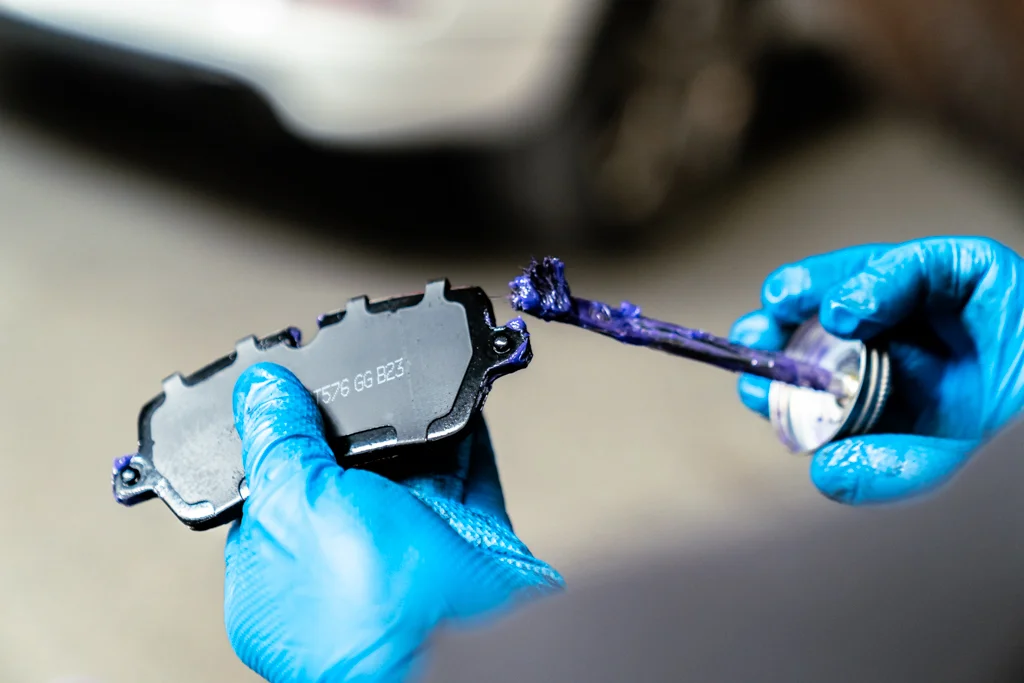
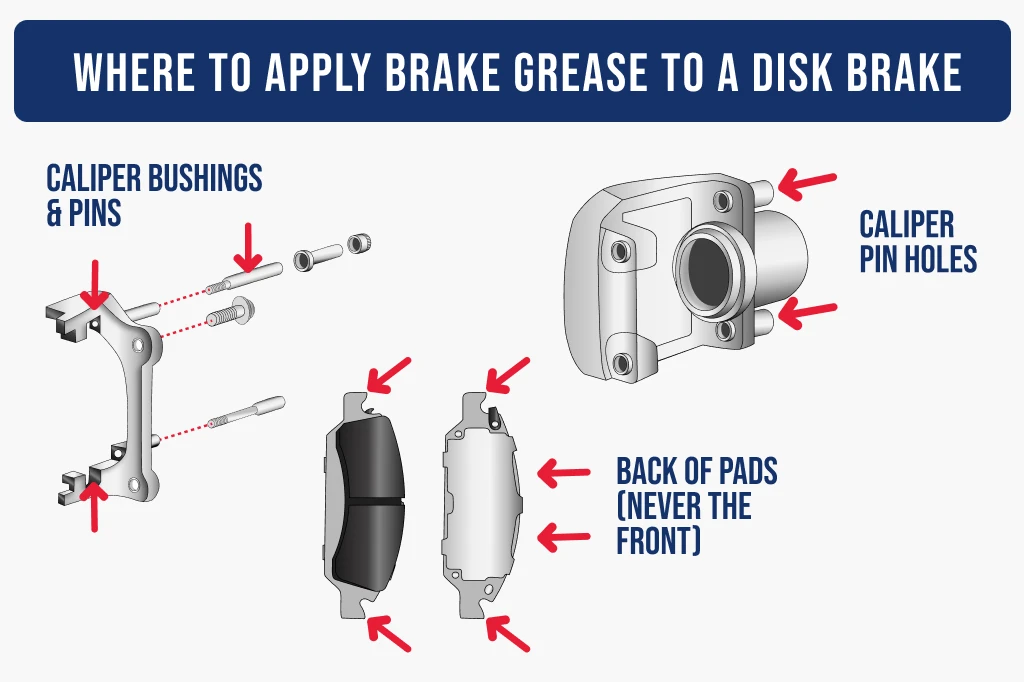
While you don’t want any lubricants in between your brake pads and your brake rotor, as this will reduce your braking power, adding special brake grease to other contact points in your braking system can eliminate your brake squeal problems. You can apply a lubricant such as white lithium grease or a brake lubricant to the brake caliper sliding pins and break pad touchpoints.
Replace a worn brake pad and rotor
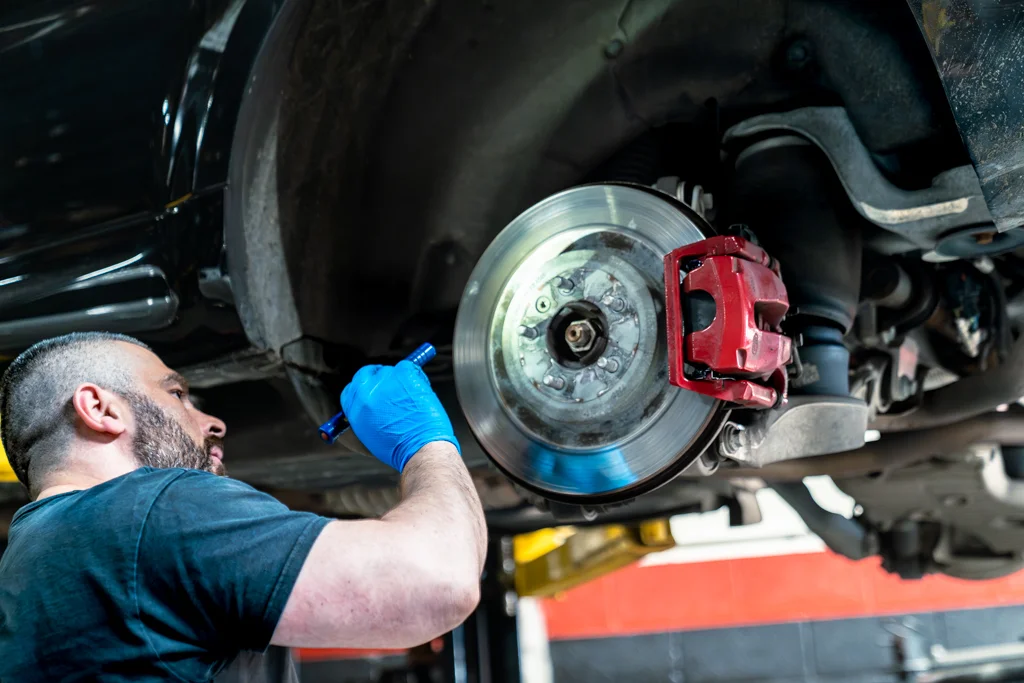
If your brake pads are worn down, and your wear indicator is making a lot of noise, it’s time to replace them. While brake replacement is a brake job that some people attempt themselves, if you are not confident about fixing your car, we recommend you always go to a mechanic. If you are a confident home mechanic, here are the basic steps:
- Remove the wheels
- Inspect your brake pads; if your friction material is less than 3/8”, you need new pads.
- Remove your pads and rotor and install your new ones, ensuring everything is tightened correctly.
Inspect your brake system
Checking your braking system regularly for wear or damage can prevent any issues from becoming serious. We recommend you also have your brakes inspected by a professional mechanic at least once a year to ensure they’re in good working condition.
When to see a professional
If you’re not confident about fixing your brakes, and they are regularly making noise, you should see your mechanic. Or, if you have tried cleaning and greasing your brakes and they are still making a lot of noise, you should get your mechanic to check your braking system thoroughly. They will thoroughly inspect your brakes and recommend any necessary repairs or replacements.
Frequently Asked Questions
Can I spray WD40 on my brakes to stop squeaking?
No, it is not a good idea to use WD-40 on your brakes. Applying WD-40 to your brakes can make your brakes work less effectively. If you do need to grease your brakes, only use specific brake lubricants and ensure that you don’t get any on the face of your pads or the rotor—just put it on the brake pad backing plate and other contact points. If the squeaking persists, it’s time to seek the help of a professional mechanic.
What causes brakes to squeak?
Brakes can squeak for a variety of reasons, including worn brake pads, dirty brakes, wet weather, and loose brake components. When brake pads wear down and become too thin, the wear indicators will make a high-pitched squeal when in use.
Dirt and debris can also accumulate on the brake components, causing noise when braking. This can also be caused by wet weather, causing corrosion of the brake surfaces. Loose brake components can also vibrate and make noise when you brake.
Can you stop brake pads from squeaking?
Yes, there are several steps you can take to stop brake pads from squeaking. One of the easiest solutions is to clean your pads and rotor surface thoroughly using a brake cleaner to remove any dirt or debris that may be causing the squeaking.
If the cause of the squeaking is worn pads, replacing them with high-quality, OEM-approved brake pads can restore your braking performance and prevent squeaking. If you are unsure of the cause of squeaky breaks, you should see your mechanic to get them checked and repaired if necessary.
Is it OK to drive with squeaky brakes?
No, it’s not ok to drive with brakes that are squealing every time you use them. However, it may be ok to drive with occasionally squeaky brakes. Brakes squealing can be a sign of a serious issue with the brake system that can lead to unsafe braking.
You may also find the noise of squeaking brakes distracting while you’re driving, which isn’t ideal. We always recommend you check out the cause of squeaking brakes and repair or replace any worn parts. Regular maintenance and inspections by a trained mechanic will help catch issues early and prevent potential problems.
How to stop the brakes from squeaking without taking the tire off?
How to fix squeaky brakes on a car without removing the tire is only possible by spraying brake dust cleaner on your braking components. This will only stop the squeaking if dust or debris is the cause of your noisy brakes. As you can read above, there are many answers to the question ‘Why are my brakes squeaking?’, most of which are not to do with dirty components. So most likely, you will need to remove the tire to fix the squeaky brakes.


